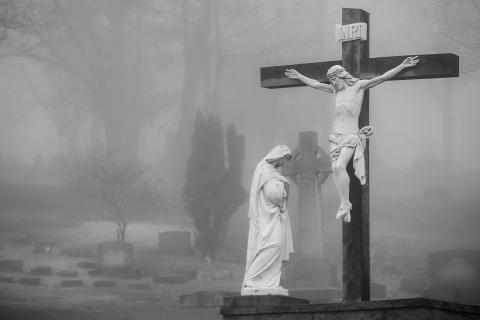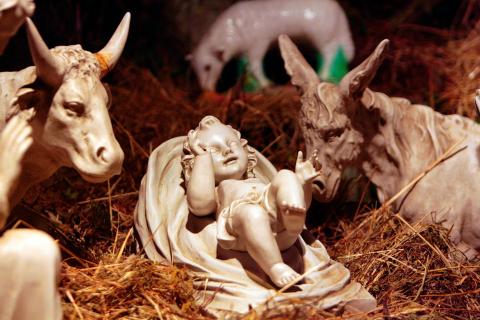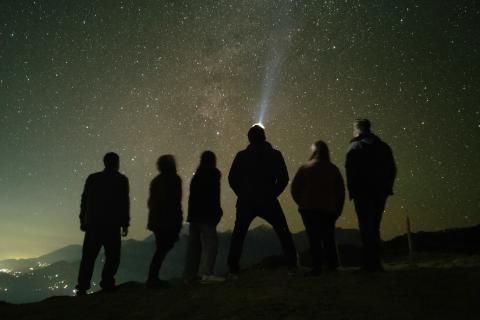
First Things recently published a provocatively titled review for a provocatively titled book: “How the Evangelical Elite Failed Their Flock,” the review promises to explain, commenting on a text making waves in Protestant circles called Shepherds for Sale: How Evangelical Leaders Traded the Truth for a Leftist Agenda.
Both are logging a stark divide that has emerged in Evangelical circles – between a growing leftist political agenda and an opposing recourse to a kind of Christian fundamentalism. “One way to crystallize Basham’s thesis,” the reviewer notes, “is that for far too long, certain ‘elite’ evangelicals have seen themselves as a kind of Protestant magisterium, delivering wisdom to the rank and file while mutually refraining from in-house criticism,” laboring “on behalf of an ‘oppressed’ group (immigrants, women, black people, gay people) or on behalf of science (environmental science, epidemiology).”
More than a religious or political diatribe, though, the texts are hopeful “not to tear the church down but to build it up … to see the pure gospel truth … preached without compromise, without apology.” Those involved in these conversations and divides are people of deep faith, good will, love for Christ and the Scripture, and so it’s worth wondering after what’s needed for doing just that, for locating the “pure gospel truth” amid the polarization driving leaders and their flocks to fracturing extremes.
Archimedes once said, “Give me a lever and a place to stand, and I will move the whole world.” The reviewer’s reference to a kind of “Protestant magisterium” perhaps points to one natural “place to stand” that some Christian faithful have tended to assume: the Church. For Catholics, for example, the Church is a sacramental and divine authority, able to parse through the “wisdom” of the world as it comes up against the wisdom of the tradition and the Scripture. For Evangelicals, the Church is more so a necessary gathering of believers for support and worship, but as a “place to stand,” it’s a bit less sure and steady.
The result is that such believers risk being moved along with the world, rather than able to move it. When winds and rain inevitably come, they find themselves in fairly sandy soil, looking for somewhere solid to set their feet. And without a strong sense of church, what tends to emerge as a kind of semi-divine body for them is the State. In England, Prussia, and to a degree France, for instance, the king has at times become the highest ecclesiastical official; in America, we don’t have a king or tsar or other monarch. And yet the “American way” has something salvific about it. Alexis de Tocqueville once wrote that America “is a nation with the soul of a church.” When that situation pertains, there is a special vulnerability to whatever the mainstream view is proposing. The temptation then is to vacillate between two extremes: to be either too much of the world, as the reviewer is critiquing, or to try not to be in the world at all, in a kind of purity from worldliness.
Neither, of course, will ultimately tend to build up the larger Christian world. The Kingdom of God on earth is not of this world, but it is meant to be in the world, always attempting to influence the world’s ways toward Christ, even while recognizing that the world will never become the Kingdom until Christ’s return. And it’s worth noting that this position is what a high view of the Church is meant to provide – a means for engaging the world without pandering to it; a lever and a place to stand that moves it.
The reviewer writes of a “loss of institutional trust among rank-and file evangelicals” that is “profound, and most likely irrevocable.” But Christ never gives up on the deep and abiding faith of any of his disciples, and so perhaps the growing divide and mistrust being often tracked in Christian news media is cause for more and more prayer for all our Christian brothers and sisters in the midst of these winds and rain, in addition to being cause for more and more gratitude for the gift of a Church, of a place to stand.
Man-made laws should follow the laws of nature. Denying biological reality harms us all.
Are younger generations – who attempt to sanitize and avoid the experience of death – capable of a happy death?
Across the country, phone-free schools are on the rise.
In Dante's city: the rich culture of Ravenna, Italy.
Yesterday was the feast of St. Augustine. Mark the occasion by reflecting on five quotes from his Confessions, by considering applying his anti-gossip methods to your own home, or by learning about the ancient tree that marks the spot of his vanished hometown.


